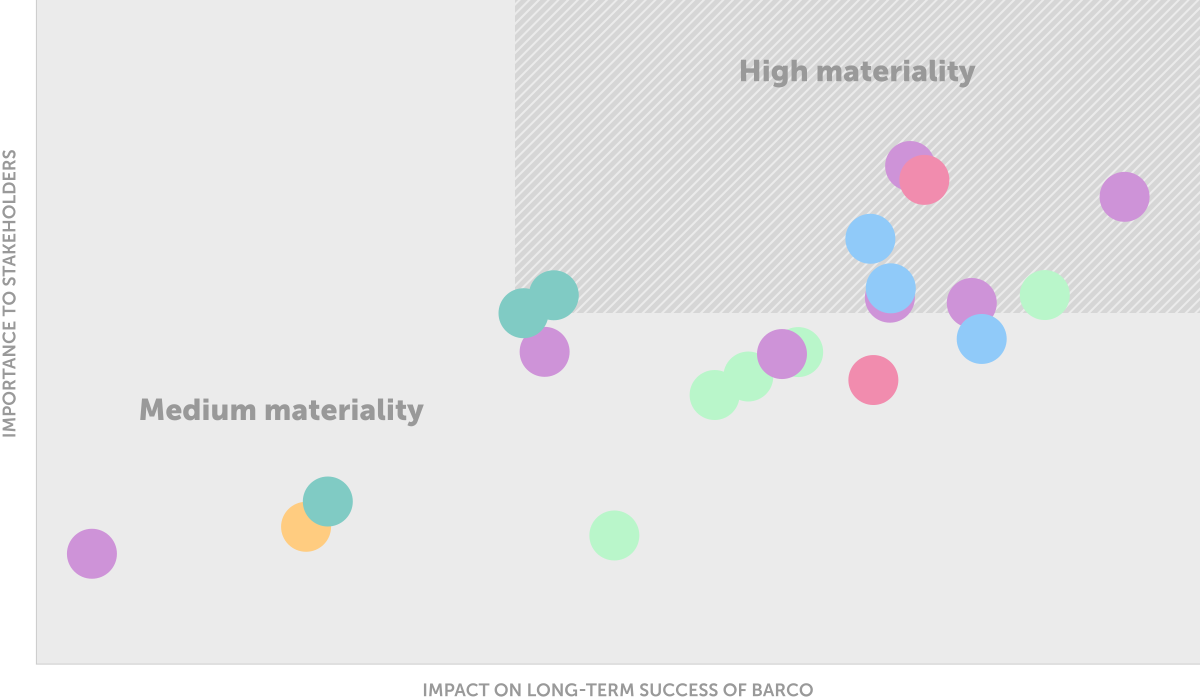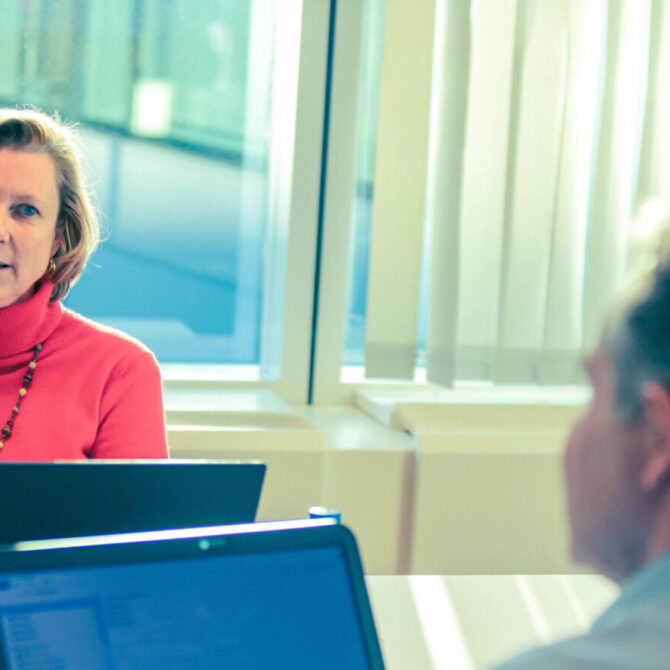As part of its new integrated report, Barco – an international leader in visualisation and collaboration solutions – needed an update of its materiality assessment. Through a comprehensive engagement process, we gauged the views of external and internal stakeholders on the societal topics where the company has or may have an impact.
The challenge
Since 2017, Barco has published an annual sustainability report, shedding light on their sustainable strategy and activities. These activities are spread across the tech company’s divisions (entertainment, enterprise, and healthcare) and regions (Americas, EMEA, Asian Pacific).
Barco’s sustainability strategy focuses on three capitals – Planet, People, and Communities. It also relies on the UN Sustainable Development Goals to shape its approach and scale up its positive impacts.
In 2020, for the first time, Barco combined its financial and non-financial reports. This integrated report required a new materiality assessment to identify the topics that matter most to the business and its stakeholders, and to reflect any changes in the business and external environment.
Barco asked Sustenuto to find an effective and efficient way to consult their stakeholders about the importance of its material topics, regardless of the complex corporate environment in terms of target markets and regions.
Our approach
We organised a broad online survey to get representative input from stakeholders across the different regions and business divisions. Specifically, we asked them how they look at the main sustainability challenges for Barco. We involved employees, companies, investors, governmental organisations, suppliers, academics, business relations, sector organisations, and NGOs.
We then complemented these surveys with in-depth interviews. We talked to multiple clients individually to gain a deeper understanding on materiality and a more general picture of sustainability priorities. Each client had an outspoken vision on sustainability approaches and strategies. This helped ensure the quality of the findings.
Finally, we asked Barco’s leadership to fill out an online survey to allow us to compare their views with that of the stakeholders.
In total, 111 stakeholders and 70 Barco leaders participated in the surveys and interviews.
The results
An updated materiality matrix
In previous Barco reports, materiality only included natural, human, and social and relationship capitals (People, Planet, and Communities). In line with the integrated reporting, it now also includes topics of the three other capitals: Financial, Intellectual, and Manufactured.
We were able to infer the following priority material topics per stakeholder group:

Screenshot from Barco’s integrated annual report 2020
We ultimately combined the stakeholders’ views on the importance of the materiality topics with the view of Barco’s leadership in terms of their potential impact on the business. The materiality matrix below reflects the medium and high material topics for Barco:

Screenshot from Barco’s integrated annual report 2020
Sustainability topics with high importance for Barco and its stakeholders belong to different capitals:
- Customer engagement (Communities)
- Employee engagement (People)
- Financial resilience (Financial)
- Innovation management (Intellectual)
- Climate change and energy (Planet)
Creating value for all stakeholders
Thanks to the update of the materiality matrix, Barco has been able to fine-tune its sustainability strategy and action plans.
On top of that, it helped Barco complement its risk management strategy. The assessment enables the company to identify and take away not only risks for society and the planet, but also for its own business.
For a full overview of Barco’s integrated report, visit Barco.




